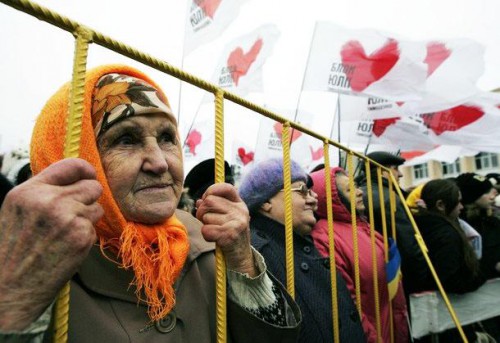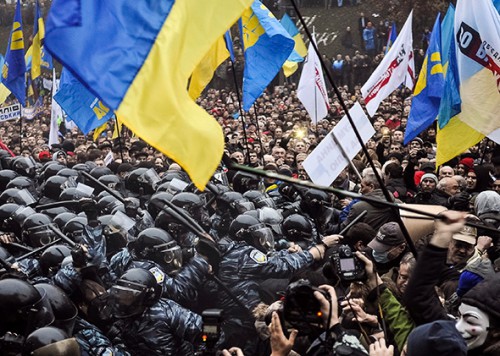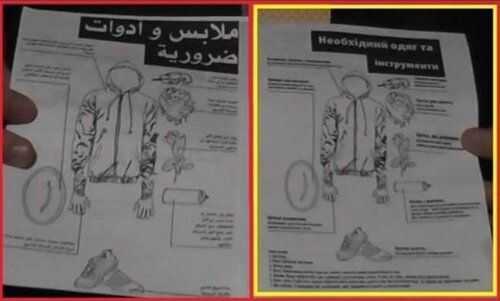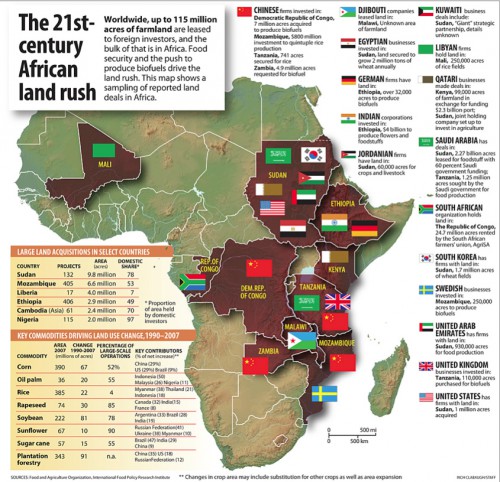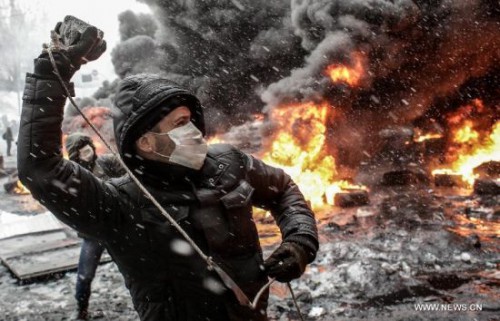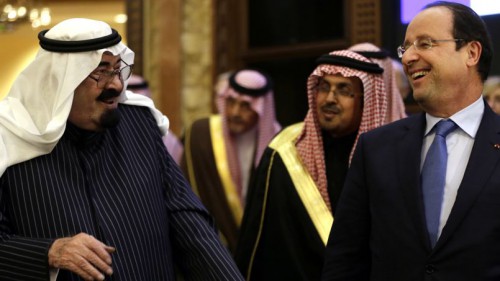Current developments both inside and outside of Syria have shown that the primary sponsors of the extremist-dominated insurgency – namely, the United States, France, the United Kingdom, Saudi Arabia, Qatar, Kuwait, Israel and Turkey – aren’t quite ready to throw in the towel.
One may be forgiven for thinking the Obama administration had decided to abandon the policy of regime change following the failed attempt to incite intervention, through the chemical weapons casus belli in August. But the harsh reality remains that the above mentioned alliance is indeed continuing its covert military support of the insurgency, in one form or another, in the full knowledge the vast majority of rebels are religious fundamentalists with a sectarian agenda, and vehemently opposed to any form of democracy or political pluralism.
Primarily, the continued support is a product of the American Empires’ overarching strategy of Full Spectrum Dominance over resource-rich and strategically placed regions of the globe, via subversion, economic and military aggression; a policy imposed to varying degrees upon any state unwilling to accept full US subordination. This aggressive US stance is by no means exclusive to periods of heightened tension or crises; it is a permanent one, brought forward to its violent climax purely through Machiavellian opportunism. In Syria’s case, the Arab uprisings provided the United States and its allies the perfect opening to set in motion the subversive plans they had been working on since at least 2006. The possibility of removing an opposing government that refuses to abide by American/Israeli diktat was simply too good a chance to be missed. Accordingly, and from a very early stage, the US made attempts to facilitate and support the violent elements in Syria, while its media arms were busy conflating them with localised legitimate protesters.
Since the US took the typically reckless decision to support, widen and exacerbate the militant elements, the policy has been an abject failure. Clearly, from the tone espoused by Western diplomats and propagandists, and the oft-repeated slogan of “Assad’s days are numbered”, they expected swift regime change. These desires were largely based on American hubris and the hope that the Libya No Fly Zone scenario would gain traction in the UN security council.
Contrary to such desires, Russia and China’s anger regarding NATO’s destruction of Libya and Gaddafi’s assassination, meant that any similar resolutions put forward on Syria would face immediate veto. In turn this has proven to be a turning point in the modern relationship between the permanent members of the security council, the full ramifications of which are yet to materialise. Moreover, it proved to be a turning point in the Syrian crisis itself; knowing Russia and China would block any attempts to give NATO its second outing as Al Qaeda’s airforce, the US once again chose the policy of further covert militarism, drastically increasing funds and weapons deliveries to the rebels – parallel to the sectarian incitement campaigns espoused by Salafi-Wahhabi clerics across the Gulf – in the hope they could overturn the Syrian army through terrorism and a brutal sectarian war of attrition.
As a consequence of the failure to remove Assad or destroy the Syrian government and its apparatus, the Obama administration, reluctant and politically incapable of engaging in overt acts of aggression, is employing a realpolitik strategy; using primarily covert militarism to appease the desires of NeoConservative hawks in Congress, and its more zealous regional influences emanating from Riyadh and Tel Aviv, while avoiding the possibility of being dragged into another overt military intervention.
In turn, this double-edged strategy feeds the false public perception of the American Empire, which the pseudo-pragmatists and neoliberal propagandists are so eager to uphold and is so fundamental to US Empire-building; that of an inherently altruistic force, acting as global arbiter, grudgingly subverting, invading, bombing, and intervening in sovereign nations affairs for the good of all mankind. As long as this false perception is upheld, the sharp-edge to the grotesque charade of US realpolitik – that of covert militarism and state-sponsored terrorism – continues unabated. Clearly, the US Empire is in no rush to end the bloodshed in Syria, its priorities, as they have been since the start of 2011, are to remove, or at least severely disable and weaken the Syrian government and state, regardless of the consequences to the civilian population.
By using its control of state-funding, the arms flow, and therefore the strength and capabilities of the insurgency as a whole, the Obama administration has employed futile carrot and stick tactics in attempts to pressure the Syrian government during the current negotiations phase into acceding to US demands and giving up its sovereignty – with both the US-led alliance, and Syria and its international allies, primarily Russia and Iran, in the full knowledge the rebels lack both the domestic support, and manpower necessary, to oust Assad or defeat the Syrian army alone. Recent reports allude to the stick of US Democracy having its most recent outing in the form of “new” and improved weapons supplies to the rebels, allegedly including MANPADS. This comes immediately off the back of the designed-to-fail Geneva “peace” talks and can be interpreted as a direct result of Washington’s failure to enforce their objectives: the stick is an endless supply of state-sponsored terrorism, the carrot is turning off the tap.
Whether the “new” arms shipments actually increase the rebels ability to inflict damage on the Syrian government remains to be seen, and is highly improbable at this stage as the Syrian army moves into the Qalamoun mountains to liberate the rebel-held town of Yabroud, in turn securing vital transit and logistical routes from Lebanon. The likely outcome of an increased arms flow to the rebels in the south, as evidenced at every interval of US-instigated militarization, will be a repeat of the same devastating results: more civilian displacement, adding to the already critical refugee crisis; more rebel destruction of civilian infrastructure, adding to further food and utility shortages; and many more lives lost.
“Lebanonization” a substitute for regime change?
As is proving to be the case, if the United States and its allies are incapable of removing the Syrian government via proxy forces without an increasingly unpopular Western military intervention, and Assad’s position and domestic support remain steadfast, then a Lebanonization strategy may well be the substitute “optimal scenario” the US and its allies are now working toward.
Encouraging, exacerbating, and inciting division between Arabs has been the long-term strategy for the Zionist establishment since the colonialists first usurped Palestinian land in 1948 – with specific effort made toward fomenting conflict along sectarian lines. The strategy of division is directed toward any Arab state or government that refuses to abide by Zionist demands. Israeli strategist Oded Yinon’s now infamous “A strategy for Israel in the 1980′s” – dubbed the Yinon Plan – provides perhaps the clearest account of Israel’s intentions toward its Arab neighbours:
The total disintegration of Lebanon into five regional local governments is the precedent for the entire Arab world … The dissolution of Syria, and later Iraq, into districts of ethnic and religious minorities following the example of Lebanon is Israel’s main long-range objective on the Eastern front. The present military weakening of these states is the short-range objective. Syria will disintegrate into several states along the lines of its ethnic and religious structure … As a result, there will be a Shi’ite Alawi state, the district of Aleppo will be a Sunni state, and the district of Damascus another state which is hostile to the northern one. The Druze – even those of the Golan – should forma state in Hauran and in northern Jordan … the oil-rich but very divided and internally strife-ridden Iraq is certainly a candidate to fill Israel’s goals … Every kind of inter-Arab confrontation … will hasten the achievement of the supreme goal, namely breaking up Iraq into elements like Syria and Lebanon.
When viewed in this context, it can be no coincidence that US Secretary of State John Kerry is desperately pursuing a fait accompli with the Palestinian Authority (PA).
Contrary to the sickening media portrayal of the US as impartial peacebroker, Kerry’s eagerness to pursue a “deal” at this moment in time is a direct result of the Syrian conflict, and the divisions within the resistance camp it has created. The US and Israel are now attempting to force through an Israeli-oriented “peace deal” with the corrupt PA that will inevitably be both a failure, and against the Palestinians interests. Staunch allies of Palestinian resistance, currently bogged down fighting Al Qaeda ideologues in Syria and defusing car-bombs bound for Dahiyeh, are in no position to support the Palestinians against Israel in their hour of need, the US and Israel fully grasp the importance of isolating genuine Palestinian resistance from the few Arab states and actors it receives support. In his latest speech, Hezbollah Secretary General Sayyed Hasan Nasrallah reminded his listeners of this very crucial issue:
“the US Administration is seeking, along with the Zionist Administration to put an end to the Palestinian cause, and it considers that this is the best time for that because the Arab and Islamic worlds are absent today, and every country is occupied with its own problems.”
In a similar fashion, the US has used the Syrian conflict as a lever against Iran in the nuclear negotiations, Washington’s longstanding attempts to pacify and subordinate an independent Iran has undoubtedly played a major role in US policy on Syria – perhaps the defining role. Consequently, both the Palestinian and Iranian conflicts with Israel and the United States are now, as they have always been intended to some extent in US calculations, inextricably linked to resolving the Syrian crisis.
True to form, Israel’s evident glee at the destruction in Syria and overt preference for the removal of Assad and the Syrian government, with the devastation that would entail, has proven at times hard for them to conceal. Furthering the point, just one of many examples of Israeli-rebel collusion came in a recent report from the National (falsely portraying the rebels Israel is “reaching out” to as ostensibly “moderate”) which relayed that hundreds of rebels have received treatment in Israeli hospitals and been sent back into Syria with up to a $1000 in cash. Israel have made further efforts to consolidate contacts with the rebels in the south, regardless of the level of fundamentalism, and cooperated with rebel factions during the Israeli bombings on Latakia and Damascus.
In a feeble attempt to whitewash this collusion, Israeli propagandists are busily spreading the misinformation that Israel is facilitating the Druze community in the south of Syria; yet the Druze community are firmly allied with the Syrian government. In reality, Israeli attempts to cultivate relations with the communities and rebels in the south should be correctly viewed as attempts to create enforced “safe-zones” around the occupied Golan Heights, in furtherance of the Zionists land-grabbing expansionist aspirations. Accordingly, Israel’s fraudulent neutrality is completely exposed by their collusion with the rebels to meet their own interests, and overt acts of aggression against the Syrian army.
There are many other indications that allude to prominent factions of the US alliance being preferable of, and encouraging an outcome of division, most notably Israel, but simple logic determines that Saudi Arabia, Israel’s most vital strategic partner in the region, and the actor from within the US alliance that possesses the most material influence and political will to support fundamentalists and terrorism, would also approve of the disintegration of the Syrian state, primarily viewing it as a blow to “Shi’a expansion”. The Saudi and Gulf fixation on sectarian themes, to mask what are essentially politically oriented conflicts, is also intentionally built to intensify the strategy of division in multi-ethnic, religiously plural societies – as evidenced in virtually every country fundamentalist Gulf proxies have been unleashed upon, most recently in Libya.
Yet even the Saudi’s have limits to their own capabilities and decisions, ultimately they rely on the military largesse and protection of the United States, and will therefore reign in the terrorist networks if push comes to shove. Hence, the recent Saudi attempts to dissociate from Al Qaeda and the various extremists fighting in Syria can be seen as largely cosmetic and for public consumption. In reality, the Saudi leadership see Al Qaeda and its extremist confrères as malleable proxies of no real threat to themselves, while constituting a critical component of Saudi foreign policy and covert aggression.
Of far higher importance to both Israel and Saudi Arabia’s confluent interests in the region, which in turn play a critical role in US calculations, are the very states the fundamentalist proxies are currently being sponsored to wage war upon; namely, Iran, Syria, and Hezbollah. The disintegration of the resistance axis is the utmost priority for the states that drive US policy in the Middle East, the supposed “threat” faced by militant fundamentalist ideologues, originally created, and intermittently sponsored by the US and its allies, is merely an afterthought.
The US Empire, in its efforts to contain, and therefore dominate and control such a strategic and resource-rich region, is more than content to allow its reactionary and sectarian clients to incite the conflict necessary to subvert, fracture and divide the inevitable power a unified Middle East could claim: if only their progressive aspirations and unity were not repeatedly “set back” by Zionist occupation and manufactured antagonism.
Phil Greaves is a UK based writer on UK/US Foreign Policy, with a focus on the Arab World, post WWII. http://notthemsmdotcom.wordpress.com/



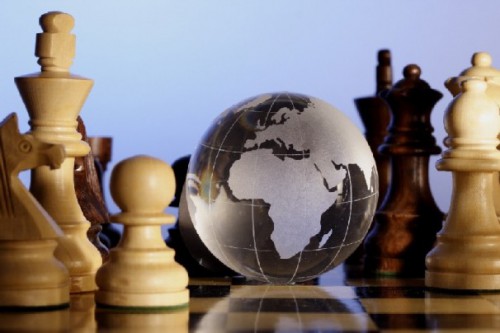

 del.icio.us
del.icio.us
 Digg
Digg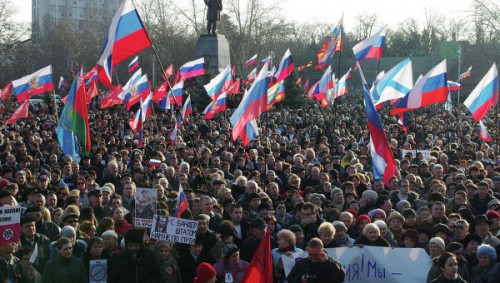
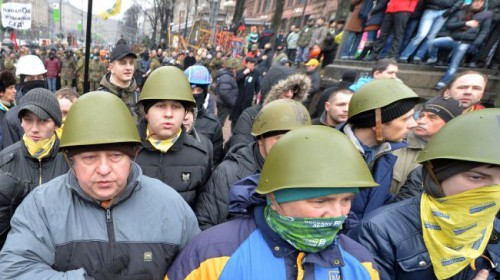
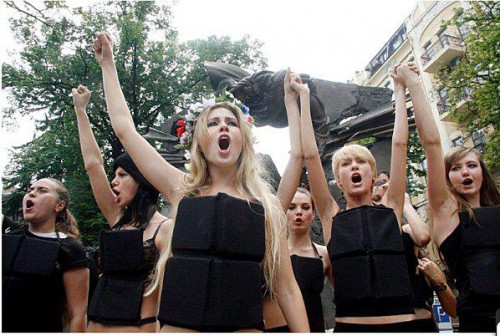
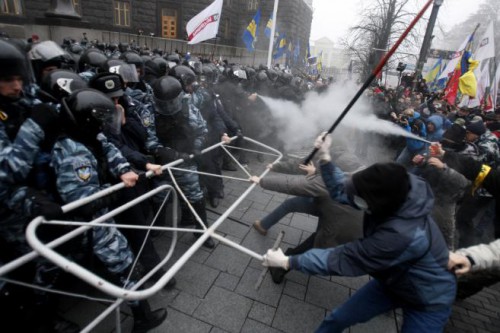
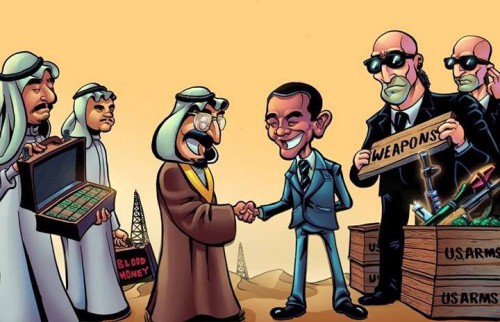
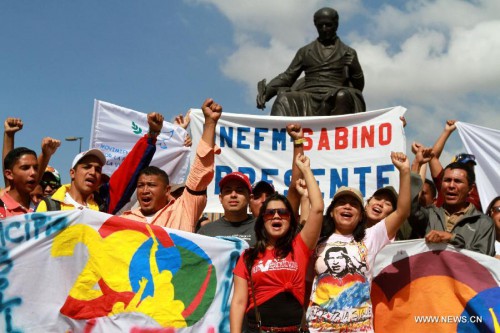
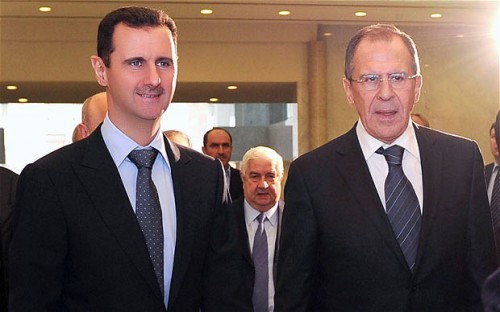
![Moore[Main].jpg](http://euro-synergies.hautetfort.com/media/00/02/2623624553.jpg)
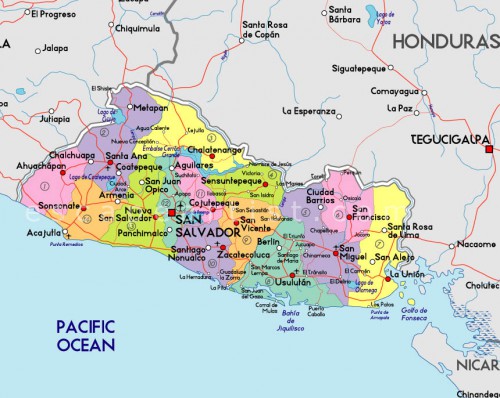
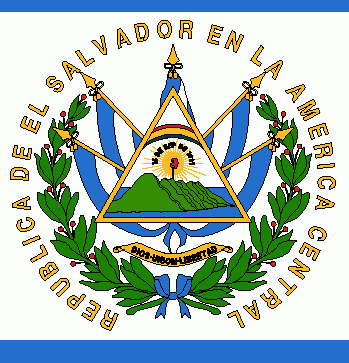 Francisco Flores was president of El Salvador when the Nationalist Republican Alliance, mostly commonly called by its Spanish acronym ARENA, was ruling the Central American republic. He is a member of the corrupt US-aligned Salvadorian oligarchy that cheapened El Salvador by reducing it to the de facto status of a US colony by following orders from Washington, DC. Exemplifying this relationship, it was under the presidential term of Flores that El Salvador would send hundreds of troops to help the United States and the United Kingdom during their illegal occupation of Iraq.
Francisco Flores was president of El Salvador when the Nationalist Republican Alliance, mostly commonly called by its Spanish acronym ARENA, was ruling the Central American republic. He is a member of the corrupt US-aligned Salvadorian oligarchy that cheapened El Salvador by reducing it to the de facto status of a US colony by following orders from Washington, DC. Exemplifying this relationship, it was under the presidential term of Flores that El Salvador would send hundreds of troops to help the United States and the United Kingdom during their illegal occupation of Iraq.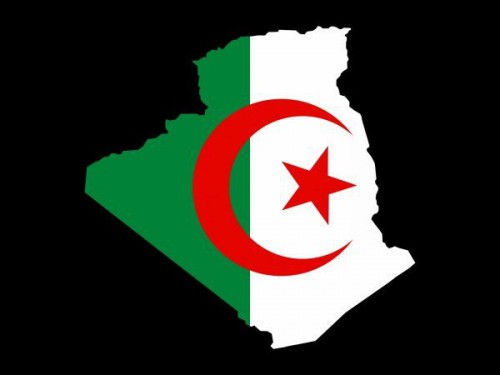
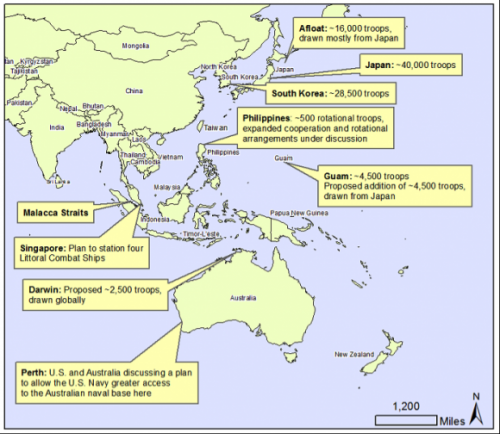
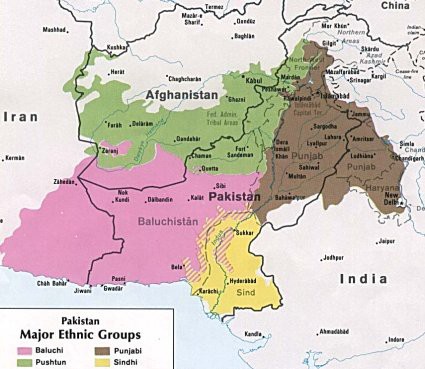

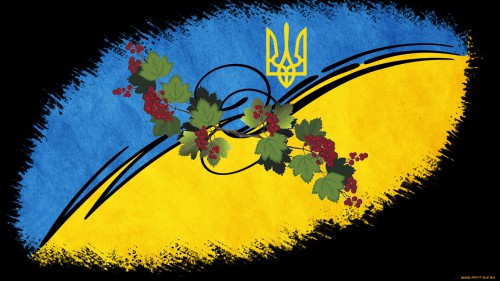
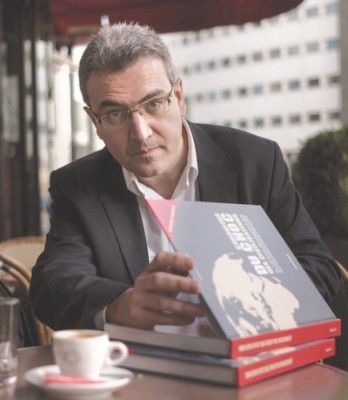 Il est toujours difficile de recenser un ouvrage qui l’a déjà été par nos soins. Aymeric Chauprade vient de publier la troisième édition, actualisée et augmentée, de sa Chronique du choc des civilisations. Intitulée « Civilisations en collisions » et mis en ligne sur le présent site le 9 octobre 2011, la précédente recension évoquait les qualités de cette deuxième édition qui valut l’éviction de son auteur de toutes les chaires universitaires à la suite d’une campagne de presse malveillante orchestrée par un de ces stipendiés par l’Oncle Sam.
Il est toujours difficile de recenser un ouvrage qui l’a déjà été par nos soins. Aymeric Chauprade vient de publier la troisième édition, actualisée et augmentée, de sa Chronique du choc des civilisations. Intitulée « Civilisations en collisions » et mis en ligne sur le présent site le 9 octobre 2011, la précédente recension évoquait les qualités de cette deuxième édition qui valut l’éviction de son auteur de toutes les chaires universitaires à la suite d’une campagne de presse malveillante orchestrée par un de ces stipendiés par l’Oncle Sam.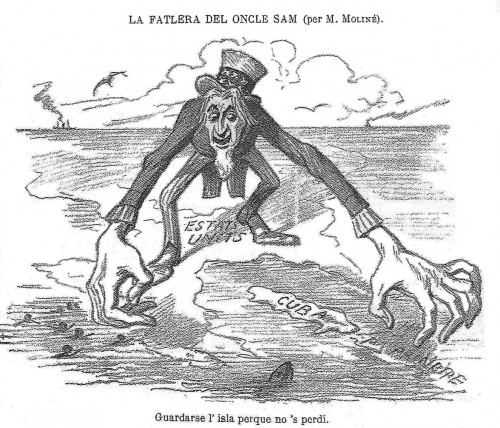
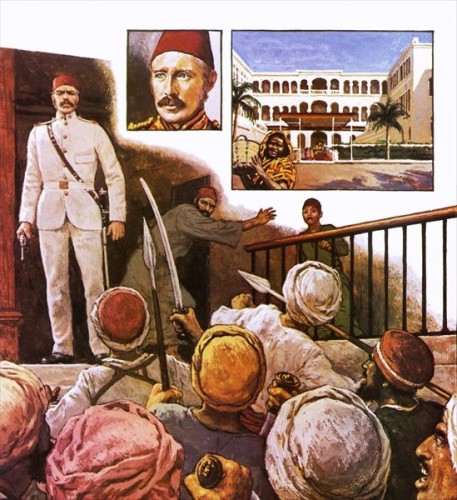

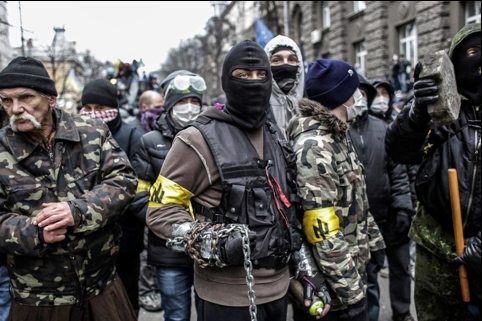
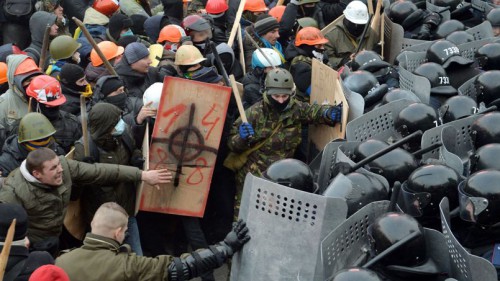
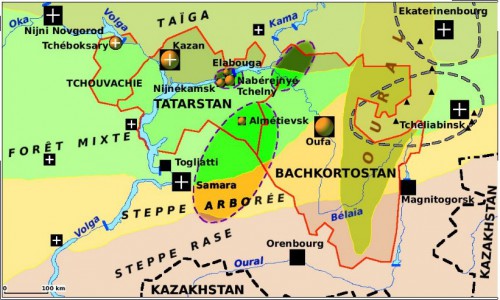
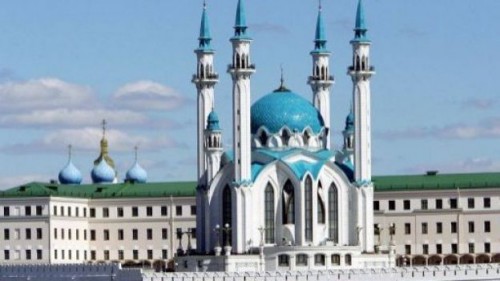 Le recensement de 2002
Le recensement de 2002 